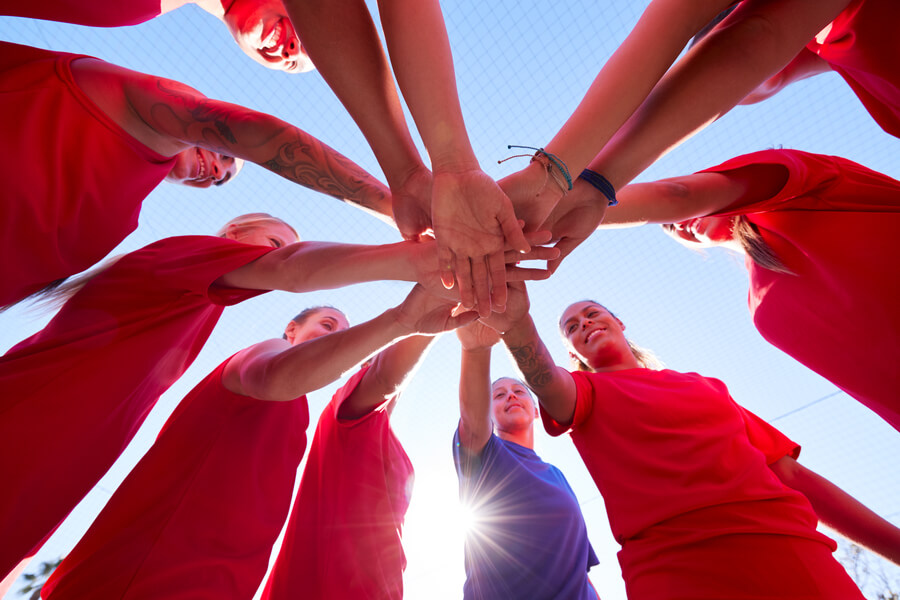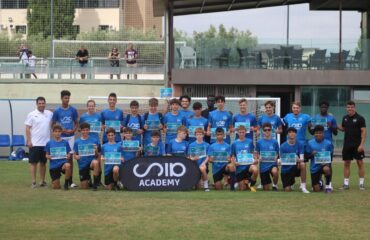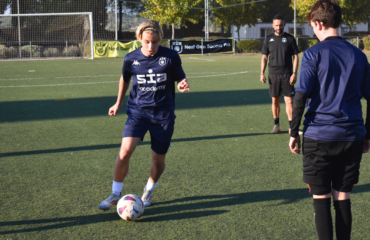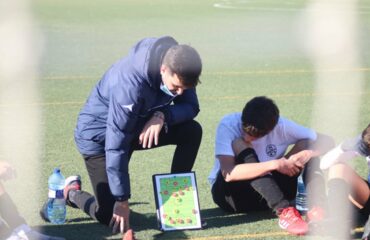What is more important in the training process of the football player, the concepts that the coaches and professionals who work during the teaching process can transmit or the capacity of absorption and transformation into acquired knowledge and aptitudes that the player can develop into skills and actions during the game?
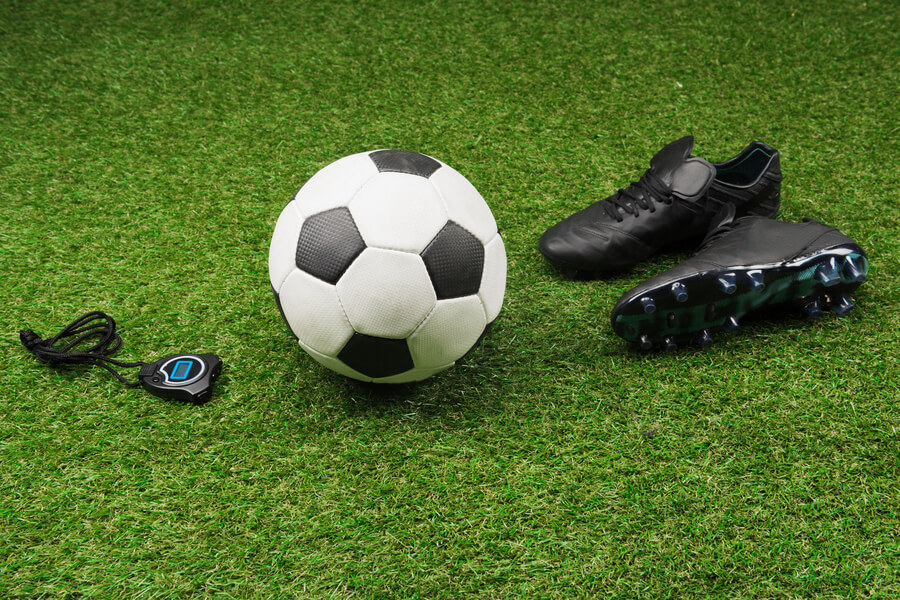
Table of contents
The training programmes of football academies must be oriented towards the integral training of the player at a sporting and educational level based on the learning objectives that are sought, taking into account the different stages of the players’ development.
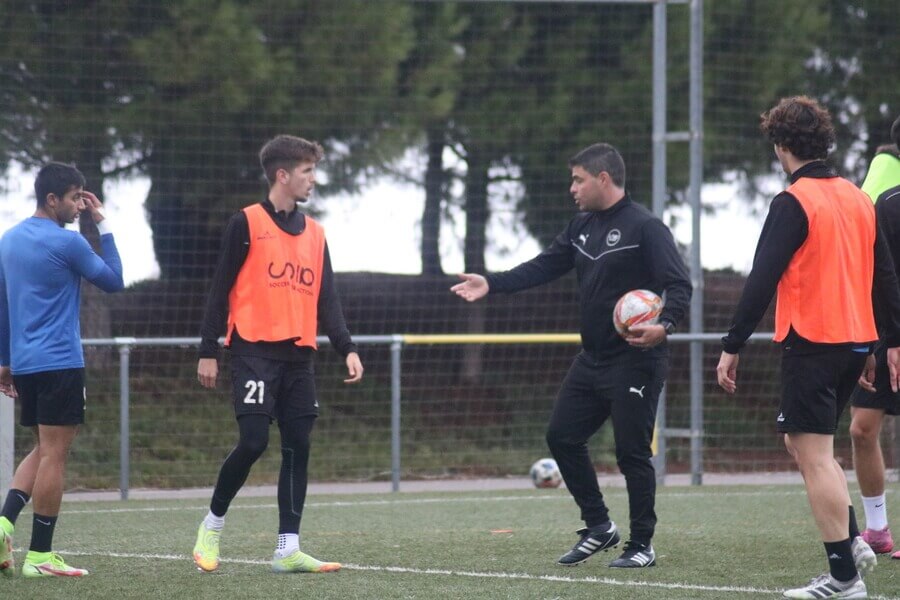
FOOTBALL COACH
Therefore, the coach has to learn to understand his role within the structure in which he finds himself. Within a football academy, we understand that the coach is the guiding thread in the teaching-learning process, where the aim is to prepare the player and enable him to be ready when he has the opportunity to face professional challenges in his football career.
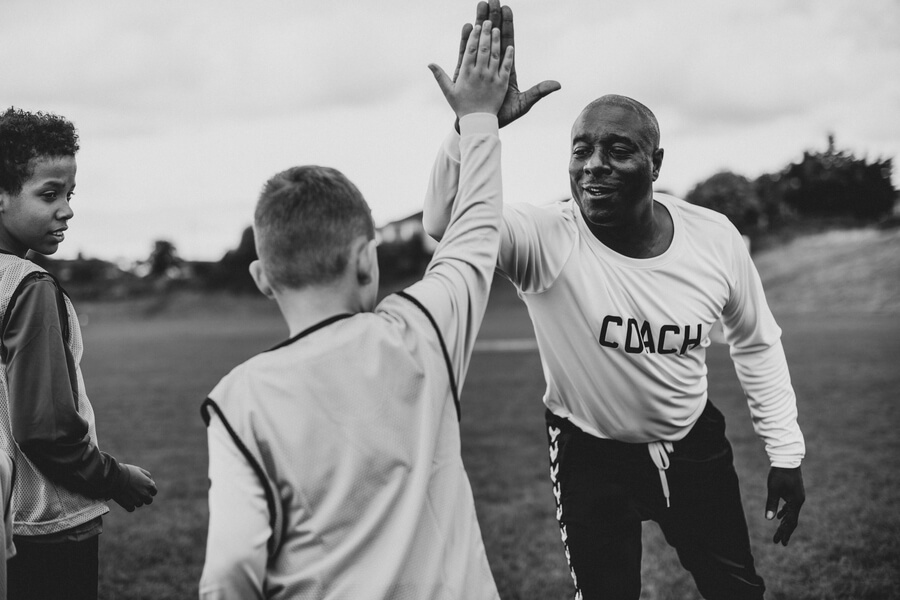
In team sports such as football, which is a sport where the level of uncertainty and changing situations are very high, the figure of the coach is key in this process, as we must know how to stimulate, transmit, generate a climate of confidence and understand that we are in charge of facilitating everything necessary for the player to evolve in sporting competitions, As has been demonstrated in recent times, it is equally or even more important to work on emotional skills to be able to control all aspects within the integral training that is worked on and that will be what makes the player grow, to be prepared to face situations that he will encounter both on and off the field of play.
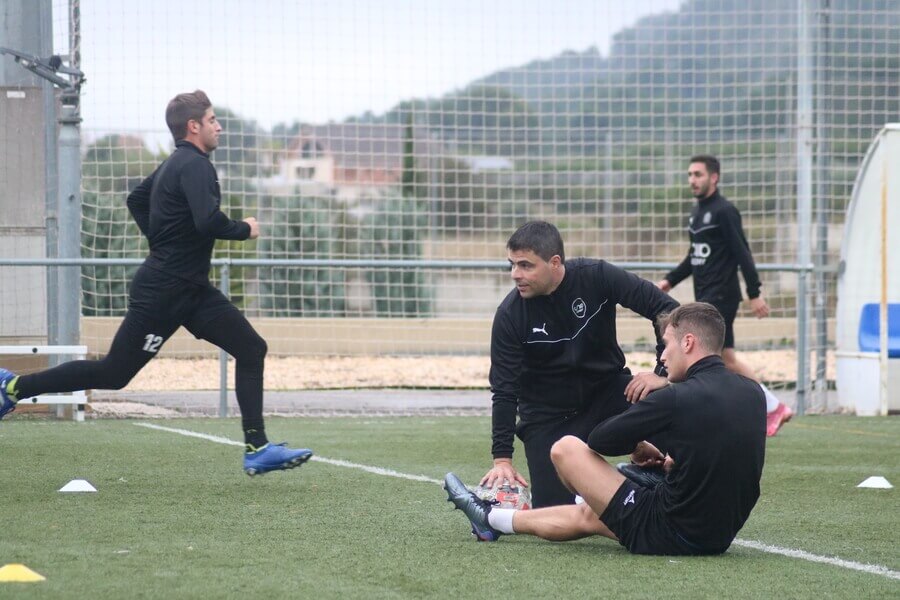
PLAYER REQUIREMENTS
This exchange of information in the coach-player binomial must be clear and constant, so that we can get to know the player’s needs and, based on this, we can work to be able to give them the possibility, within a controlled but changing environment such as the training sessions, to live experiences and game situations through which the players are able to develop all their capacities to increase their level.
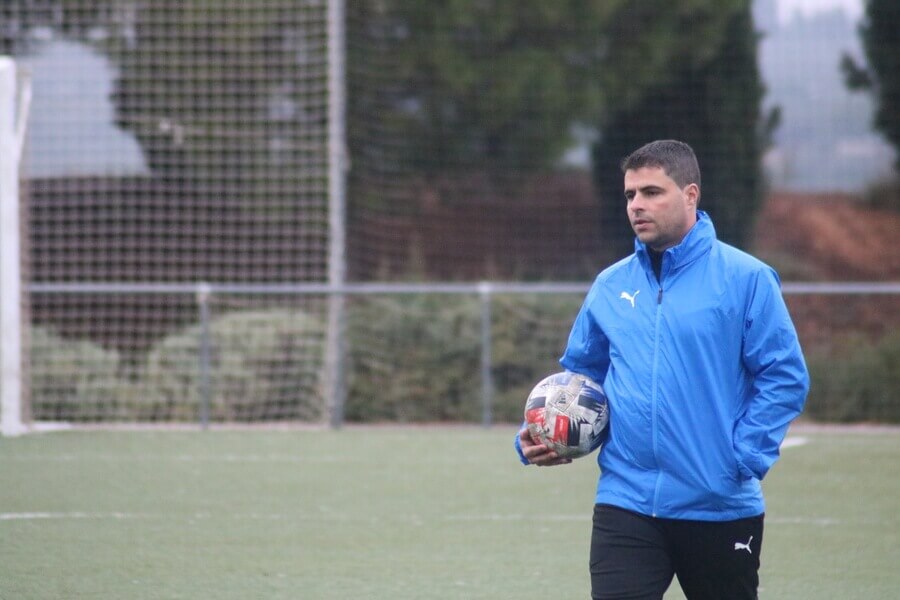
TOPICS “CREATING AUTOMATISMS IN FOOTBALL”.
Regarding this phase of player development within a team, we hear the phrase “creating automatisms in football” as these will make teams work like clockwork. However, working from the perspective of an integrative methodology and absorbing knowledge from different currents that allow us to see what we can use from our point of view for the benefit of the players, we believe that it is necessary to have a great capacity for adaptation, since depending on the context in which we find ourselves, the moment, the situation, opportunities appear that we have to take advantage of to involve the players in an active way in their own learning.

AGREE SOLUTIONS
Listening to their opinions, dialogue, will enable us to find joint solutions to situations that arise during the game, in training and competition. In this way, we will help to generate a climate of trust, which will help the coach to gain respect within the group of players by showing sincerity and the ability to value opinions in order to reach “consensual” conclusions.
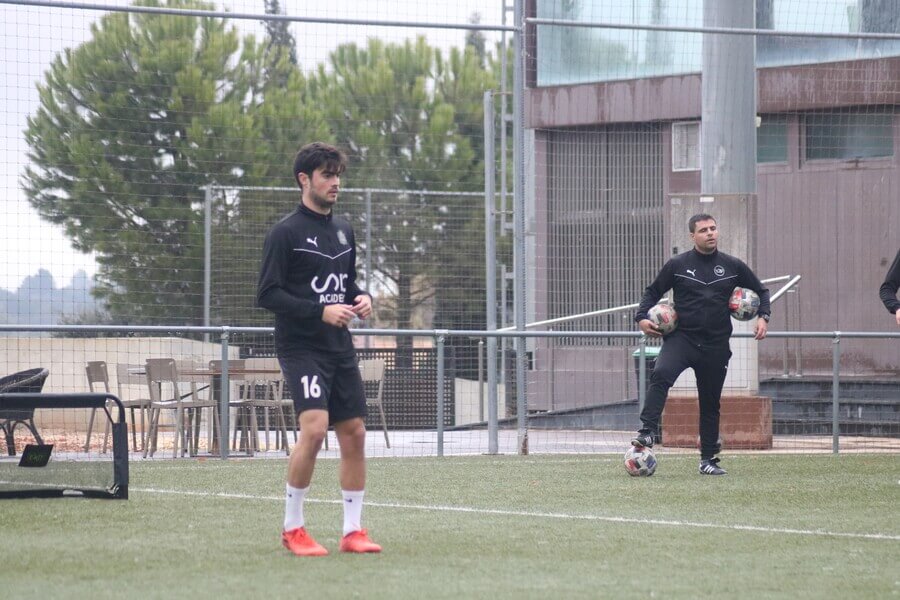
IS THE TEAM ABOVE THE PLAYER?
We find ourselves in a collective sport in which we hear different opinions, for example as Alfredo Di Stefano said “no player is as good as all of them together” as well as the phrase “The team is above individuality” so often used by many coaches.
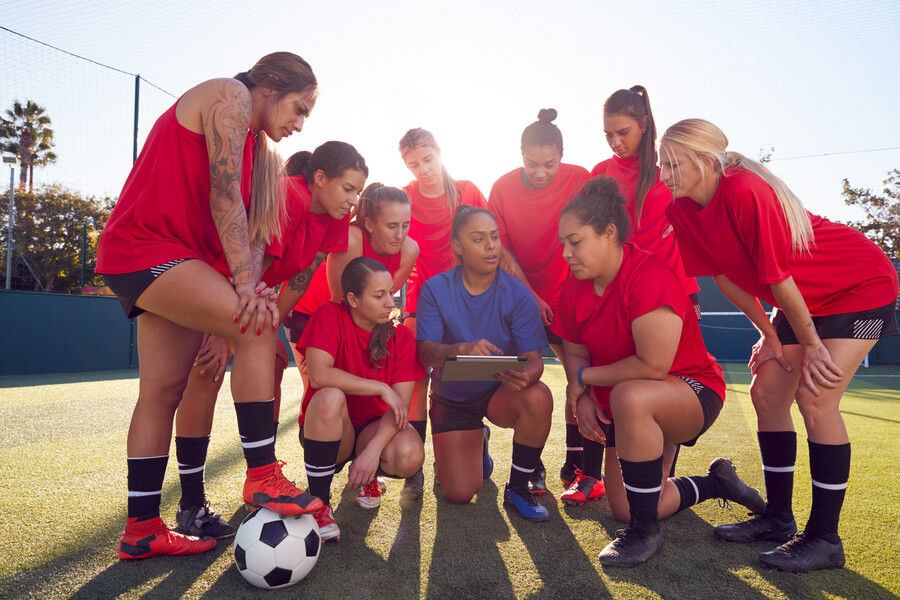
On this basis, we must know that one of the main starting points for coaches must be to be clear that the important thing in this sport is the player, regardless of whether it is an individual or a team sport. The player has to be the main protagonist of his own learning, which will lead him to develop both individually and collectively.
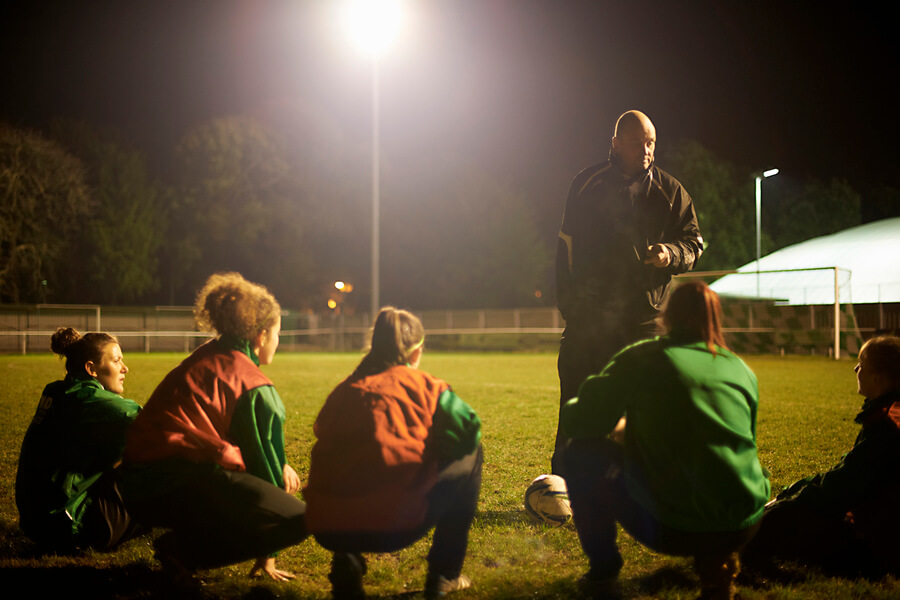
The football player has to be able to analyse each of the game situations, with this and with the experience accumulated during the training process where competition is part of the training, to be able to understand the game.
MISSION OF THE COACH TOWARDS THE PLAYER
Moreover, the football coach has to be able to generate contexts and situations close to the game, to propose complicated situations that allow the player to solve a problem of the game based on analysis and decision making.
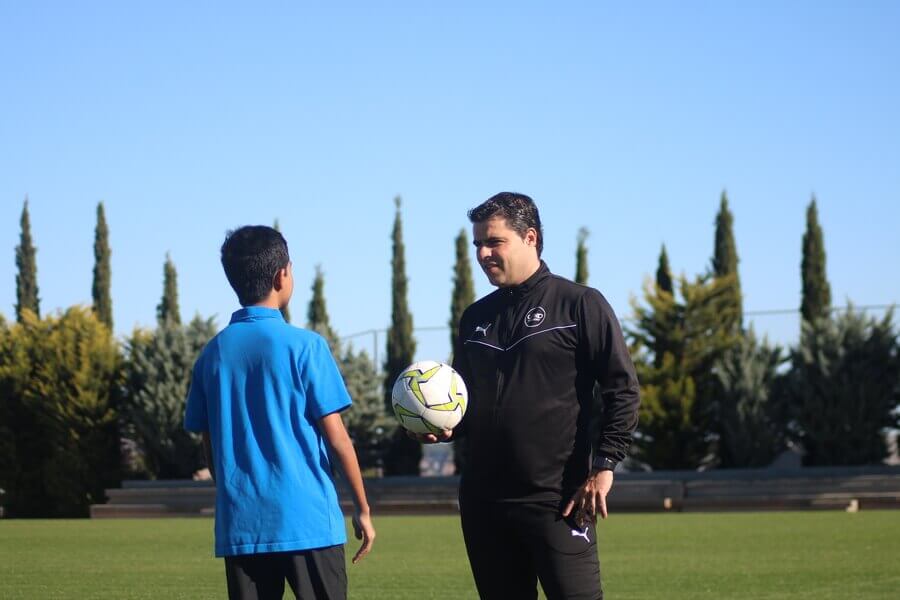
These contexts are generated so that players are able to assimilate this knowledge in order to be able to face game situations with sufficient autonomy to be able to analyse, decide and execute advantageous actions at an individual and collective level.
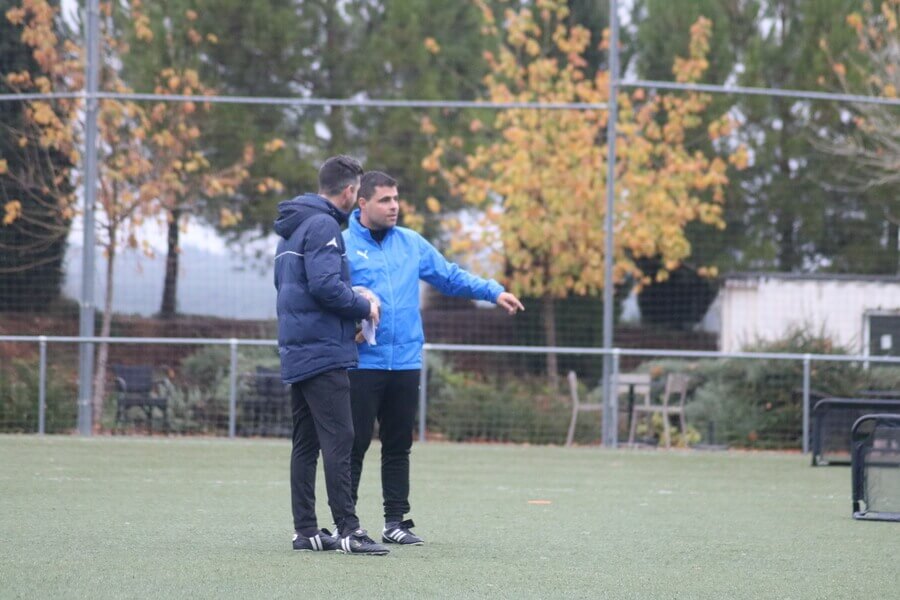
PROPOSALS BASED ON TARGETS
For this, these proposals will have to be coherent with the objectives that are sought and in this way the consequence will be that the player will have the capacity to optimise his performance and to construct his own learning.
The coach will work with the premise of providing the football player with contexts related to the game, always relating them also to the age, the evolutionary stage in which they find themselves and adapting the tasks to the sporting level of the players.

ERROR FRUSTRATION MANAGEMENT
It is important to take into account the management of frustration in the face of mistakes. These players will make mistakes because in a collective sport such as football the number of mistakes that are made is high, and that is exactly where the work of the coach from a sporting point of view, the management of emotions, is important to turn these mistakes into opportunities for improvement. Mistakes are an opportunity for growth. We must make the player understand that mistakes are part of the game and the coach has to be able to generate an environment in which we can turn this into situations similar to those that appear in competition in order to nurture the player’s learning throughout the process.

TRAINER AS GUIDE
Therefore, the coach will be in charge of guiding the player-centred training process so that the player is the real protagonist.

He has to understand, analyse and apply the information provided by the players and the environment to make an initial assessment appropriate to the context in which he finds himself with the assessments focused on the development of his capabilities to have a starting point from which under our methodological prism we will focus on generating situations extracted from the game to simulate real situations enabling player interaction and encouraging decision making in changing contexts close to the realities of the competitive moment and provide the player with the necessary skills to internalise, decide and know what to do in each of the situations that appear during the game.



